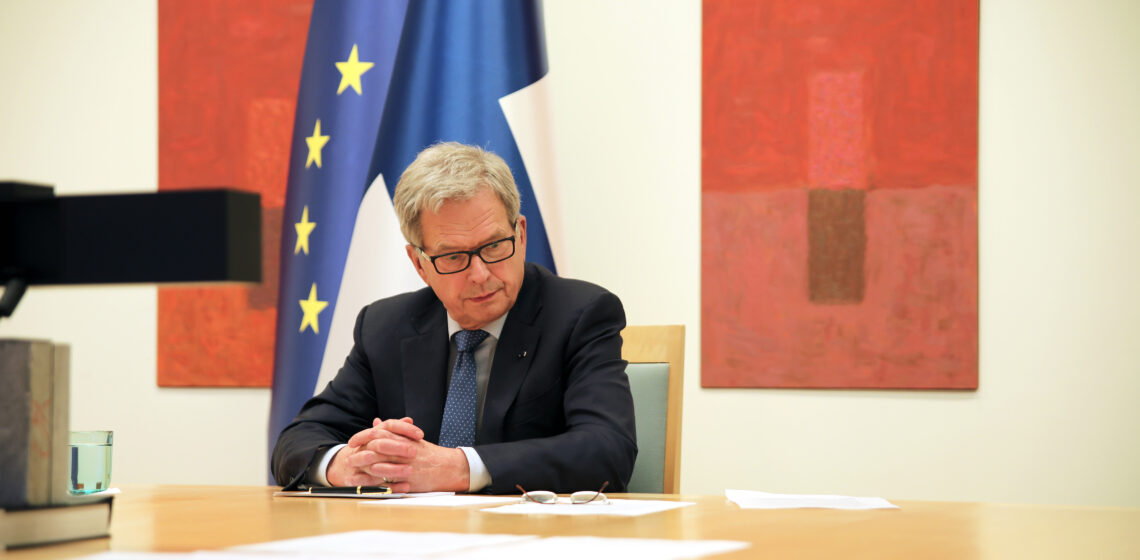“Multilateral cooperation must be strengthened, renewed and updated to suit the future," said President of the Republic of Finland Sauli Niinistö at the Riga Conference on Friday, 13 November 2020.
President Niinistö participated in a virtual panel discussion at the conference together with President of the Republic of Latvia Egils Levits, President of the Republic of Estonia Kersti Kaljulaid and President of the Republic of Lithuania Gitanas Nauseda. The panel addressed, in particular, the ability of the multilateral rules-based system to respond to the challenges of the world today.
Multilateral cooperation has faced major challenges in recent years. International agreements are often challenged and interpreted in ways that undermine their legitimacy. According to President Niinistö, it is fashionable to say that multilateral cooperation is broken. “But it’s not completely broken. It is being challenged, but it still works. However, it needs to be strengthened, reformed and updated to suit the future,” he said.
President Niinistö stated that while we must be ambitious in developing the UN, we must also recognise its achievements. As an example of successful multilateralism, he highlighted the World Food Programme (WFP), which was awarded the Nobel Peace Prize this year.
Combating global challenges such as pandemics and climate change requires cooperation. The President asked if common enemies could unite us. “They sound like empty words, but it’s true: we need international cooperation more than ever.”
Does multilateralism still mean the same as before?
During the panel discussion, President Niinistö also raised the issue of what multilateralism exactly is in the 2020s. “On whose rules, standards and norms is order now based? To what extent are European values and interests reflected in the international system?” the President asked, referring to UN General Assembly speeches of China and Russia, which stressed the importance of multilateralism.
Recently, France and Germany have sought to create an alliance defending multilateralism. It will be interesting to see how compatible this is with the ideas of a democratic alliance proposed by the Biden administration. The return of the United States to organised international cooperation is an encouraging example, but is it enough? President Niinistö emphasised that, in addition to like-minded groups, we need to talk particularly to those with whom we least agree.


